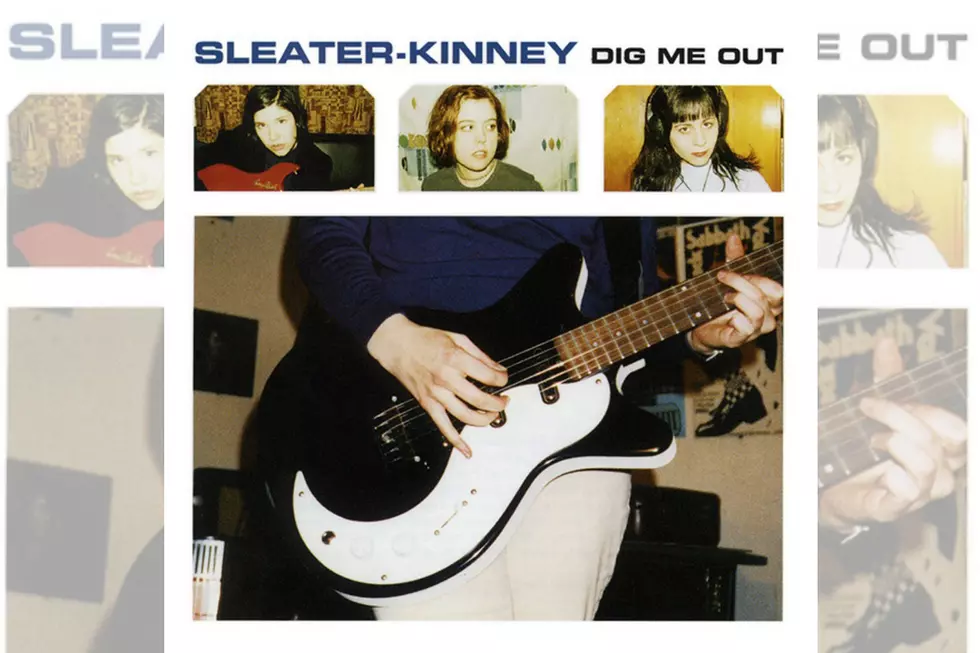
Carrie Brownstein Discusses Her Mother’s Eating Disorder in Memoir Excerpt
This Tuesday (Oct. 27), Carrie Brownstein will release her memoir, Hunger Makes Me a Modern Girl, via Penguin. Now, the Sleater-Kinney guitarist has shared an excerpt -- which can be read in full at the Guardian -- from the forthcoming book that details her mother’s battle with an eating disorder.
Brownstein writes about her mother suffering from anorexia and eventually receiving treatment at a Seattle facility:
In a photo from several years later, the last family vacation we would ever take, my mother is standing on the beach in Hawaii. Bikini-clad, burned red as if she’d been dipped in cherry Kool-Aid, bags of white pus forming on her sternum, bones for days. Thin, brittle hair – it had been falling out for a while now. Hollow eyes and cheeks. She is somewhere between rotting and a fossil. Maybe she hoped that the smaller she got, the easier it would be to disappear.
After consulting a doctor and nutritionist, and probably not at all on account of my singing or tormenting, my mother finally did admit – to us, to her friends, to herself – that she was ill. And when I was 14, she checked herself into an eating-disorder unit at a hospital in Ballard. She would be gone nearly a month.
In the final paragraph, Brownstein writes of her mother’s return home:
When we got back to the house, there was a sign above the garage door: “Welcome Home.” I’m certain that when my mother saw it, she wanted to turn right around and go back to the EDU. Who wants to advertise that they are home from the hospital, unless they’re bringing home a baby? It was glaring blitheness on my father’s part. Maybe my mom was a newborn, coming home to be loved and nurtured in all the ways that could keep her healthy and in recovery. It was a do over. The welcome turned out to be temporary anyhow. Within a year, she left for good.
Previously, Brownstein shared another excerpt recalling her relationship with her father, including the moment he came out as gay:
So here was my father, in this white apartment with textured walls and thick carpeting, and the scant amount of furniture and paintings he’d brought from Redmond, looking like interlopers, like imposters, neither here nor there. And we’re sitting in this living room and I have no idea who he is and he says, “So I guess I’m coming out to you.” He said it like that, in a sort of meta way, as if he were along for a ride that his new self was taking him on. Which was typical, like he was just a sidekick in his own life, a shadow, though I’m assuming it was more of a linguistic fumbling, not knowing exactly how to come out or what words to use.
I was used to this sort of presentational mode at this point. What I heard was “Your mother is going into the hospital,” or “Your mother is moving out,” or “I have cancer,” and then again a few years later, “I have cancer.” I was used to being sat down and presented with life-altering information and taking it with expected nonchalance. This was me asking my friends’ parents about MS all over again. My role was to be factual and professional, like a reporter. Emotions were not part of the equation. So, tell me, Dad, how did you know?
Read the entire excerpt at the New Yorker.
More From Diffuser.fm









